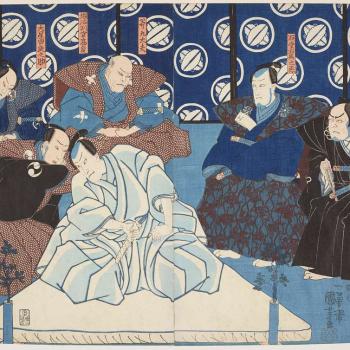His supporters argue that this is merely an expression of xenophobia. Ghosn has outlived his usefulness (Nissan isn’t doing that well anymore) and so his showy lifestyle will no longer be tolerated. His fall from power has less to do with any meaningful mistakes he has made and more to do with a retrograde culture that has been waiting for him to trip.
Others simply say that he broke the law. Not only did he fail to report earnings (and plot to make more than was legal) but he also is now accused of embezzling funds—that’s illegal anywhere. He is not, on their view, being targeted. He’s just a criminal; criminals get prosecuted, even if there are some questionable things in Japan’s justice system. It is, after all, a country with a 99.9% conviction rate; it is supposed to charge and take down the right people.
I, however, would like to offer a third perspective: there is something fascinating in the idea that Japan manages (unsuccessfully) a precarious balance between old and new that most Western nations and cultures simply do not. Here in the US, as Tocqueville tells us, we have, since colonization, known nothing but the imperatives of the market. Thus, we are materialistic; we are consumers. We value efficiency and profit maximization. No wonder we can praise Disney for donating to the rebuilding effort in France while ignoring the fact that around 10% of their LA staff are homeless. In the US, we are pure capitalists; our traditions are merely those of the 17th century and after. Things differ in other parts of the world. In Africa, for example, many hope that post-colonial peoples may re-assert who they are (or have been) over and against the world market. In most cases, however, the market wins: who doesn’t love efficiency and enrichment? Development helps people! I could go on and on. But, of course, economic systems bring cultural changes. And so, while people may retain their language and a few quirks, there will be McDonalds and iPhones and Twitter wherever you go.
Japan is thus rather odd; it seems both hyper-capitalist and hyper-traditional. A major value in traditional Japanese culture is, of course, humility. Ghosn has sinned against humility. He has failed to be sufficiently unassuming in his rule. In fact, he has, some say, been a tyrant, when typically Japanese boards call for at least the appearance of consensus.
Ghosn has been clear that he simply wants to rule the company like any other global one: extremely-high CEO pay, autocracy, and a ruthless commitment to profit-making and nothing else. This carries with it many rights for the board: many homes, fancy clothes, and political power—all worn and displayed openly. Ghosn has argued: Nissan is a global company. It shouldn’t be bound by backward, Japanese fetishes! (The New York Times). Japan has responded that these traditions do matter; not everything can simply be pulverized by the imperatives of profit and growth.
None of this is to say that Japan is perfect or even has the best motivations for doing this. The country is extremely xenophobic. As noted above, its justice system is suspicious in a variety of ways (even if they incarcerate fairly few people by our standards). The cultural fascination with young girls is disturbing. That’s not even to mention the birth rates, the depression, and hikikomori. But there is something that should interest any sort of anti-capitalist, whether cultural or economic, in contemporary Japanese life. Western countries already seem to be headed down the bad side of the Japanese road. Why not try to learn from the good side? How have they managed to go on with certain values that Christians support (e.g. humility)? How have they managed to venerate what makes them distinct, to preserve their culture, in a world that seems mostly interested in destroying difference and making each of us merely another cog in the market machinery? Many a country—be it Algeria, Vietnam, or even (some might say) Ukraine—has fought to preserve its past, even while putting hope in a more egalitarian future. Japan went from isolationist to major world power in a century; it mastered the market but held on to what it was. In fact, its modernization came largely as a result of xenophobes working to restore imperial power. The whole thing doesn’t seem to make much sense.
As a Christian and an anti-capitalist, I find this fascinating. I do not admire much about Japan, but I cannot help but meditate upon it and what it has been and become. What future does my faith have? Having grown accustomed to power and influence, what will become of it in this new world? How can virtue remain over and against global capitalism, which has already destroyed or absorbed so much, even transforming certain parts of Christianity into its loyal yes-men? There don’t seem to be any easy answers. Looking to Japan, however, maybe we can glean something, and, if briefly, celebrate this small victory for humility in a world of flash and self-aggrandizement.













